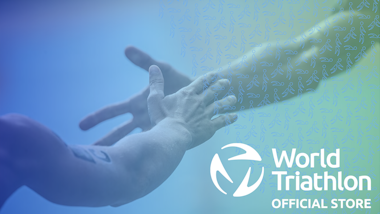Team ITU's 2012 programme just getting underway
27 March, 2012 | español
Slovakia’s Richard Varga was due to make his Team ITU debut in Mooloolaba, before injury curtailed his chance to race the first ITU World Cup of the season.
When he realised he might not be able to compete, Varga contacted ITU Development Director Libby Burrell, who said the invitation still stood. Instead of getting help with training miles, Varga had MRIs and treatment. That invitation summed up what the programme is about, while one of its key objectives is to offer elite level race day support, Team ITU is far from a just a race-day experience. While Varga’s diagnosis, stress fractures in his left foot, have dashed his London Olympic dream – this week allowed him to find the next best step forward.
“I didn’t know if I should come here or not, I wrote Libby for ask what she think about it, if she can help me or something like that, or what is the best for me,” he said. “She give me an opportunity to come here and have some treatment, get a diagnosis and be with the team. I wasn’t sure how bad is my injury, so I really wanted a diagnosis. It was really nice I could come here.”
It’s a message that applies equally to all of the Team ITU programme. While the first event of the 2012 season is over, that’s certainly not where the people behind Team ITU - including some of the world’s best coaches, bike mechanics and physiotherapists - work either started or finished.
Before Mooloolaba last week, Team ITU coach Mick Delamotte liaised with each athlete, their coach and national federation to ask about their athletes programmes and whether they had any specific questions. When Varga, Alexandsr Latin, Ron Darmon, Per Wangel, Fanny Beisaron and Mateja Simic arrived, bike mechanic Jeff Donaldson and physiotherapist Alex Price set to work, helping figure out correct bike set-up, look at biomechanics, and treatment. The aim is not just to make things work on race day, but learning and improving for the future.
For example, Donaldson quickly figured out that Beisaron had a chain ring too large, swapped it for a smaller one and immediately she was “flying,”. “Something was wrong, well it wasn’t wrong but it wasn’t right for me, the chain ring so he went to the store and bought me a smaller one for me and it was perfect. It’s just one example of how they help,” she said.
But Team ITU isn’t about offering a one off solution that athletes then take back, instead the staff liase with them too to make sure it’s the best solution all round. Delamotte said Mateja Simic’s coach back in Europe wanted some more information on her run, so he did just that.
“I went and found a flat spot and we did five 1km runs. While she was still out cooling down, I’d emailed all her heart rate, time, leg speed, plus videos and photos back to her coach who was just saying ‘this is great,” he said. “We don’t take them away from their coaches, it’s just another form of support.”
This also feeds into another goal of Team ITU, to help improve the coaches in developing NFs, while the athletes themselves are becoming role models. In countries where the total triathlon participants range from a few hundred to a few thousand, they are aiming their best to take it to the next level. Darmon explained that triathlon in Isarel, where his Team ITU teammate Beisaron is also from, has grown rapidly.
“It’s grown a lot since the development programme started, a lot more, we used to show up to a race and there would be 100 people max, now there is 1500 hundred,” he said. “It’s all thanks to the ITU, who took the athletes and the coaches who teach them about triathlon, because Israel didn’t have much knowledge about it.”
Overall, in it’s five year history Team ITU has become like a family. In Mooloolaba Lisa Norden dropped in to say hello and also use some of their equipment, while Barbara Riveros Diaz always sends a letter pre-race wishing everyone good luck. It also gives athletes a support network at races even when Team ITU isn’t operating. It is as Burrell says, like a high performance programme for a national federation but with a twist.
“We handpick all the staff, we can’t have someone who says ‘I’ll come, but I’ll only treat the athletes from 8am until 6pm, that’s not how it works,” Burrell said. “Now it’s a family, we support each other, and all the staff who have joined the programme stay in it.”
The next official event for Team ITU is the Huatulco World Cup in May, but rest assured that the programme’s work doesn’t stop there either.
tags
Array {tag_name} {/tags}
Related articles

Team ITU starts its sixth season in Mooloolaba this weekend, click here to find out more about the athletes in this ITU…

Five years ago, Team ITU was simply an dream. In Auckland this week, the team is celebrating five years of making dreams come…








